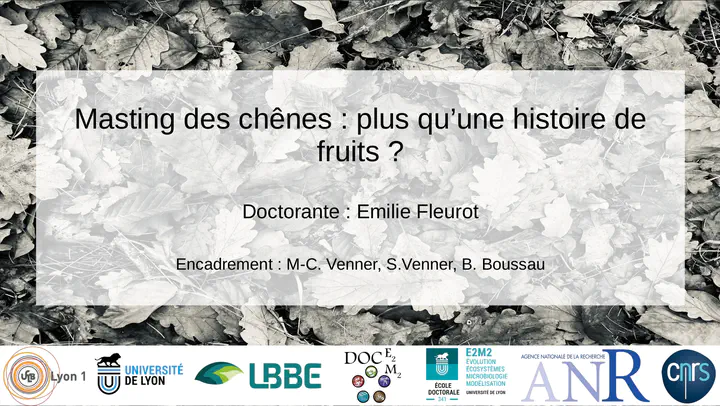Masting des chênes : plus qu’une histoire de fruits ?

Abstract
In many perennial wind-pollinated plants, the dynamics of seed production, commonly known to be highly fluctuating from year to year and synchronized among individuals within populations, dramatically affects forest regeneration and biodiversity. However, the proximate causes of such seeding dynamics, called masting, are still poorly understood. Two hypotheses are currently proposed in litterature to explain such variations. It could be explained by strong variations in fruiting rate (fruit maturation masting) or by variations in allocation to flowering (flower masting). Oak masting is generally described as fruit maturation masting however, large field surveys of flowering and fruiting available to correctly choose between those two hypotheses were inexistant until now. That’s why we intended to address this question properly using a unique long-term field survey of oaks flower and fruit production at tree level. We showed that there is both a large variability in fruit maturation rate and in flowering intensity in oak masting. The high variability observed in acorn production is thus the result of a combination between the two hypotheses described in the literature. This result highlights the importance of taking flowering into account to identify masting proximate mechanisms, which isn’t the case in most published studies. Our work showed that flowering intensity and fructification rate are both influenced by past year fruiting intensity : it could either highlight a resource depletion effect or a resource allocation strategy. Fructification rate is also influenced by the amount of flowers produced by conspecific neighbors, an estimation of allogamous available pollen, an important resource for self-incompatible species such as oak. Identifying proximate mechanisms is an important step to improve our understanding of oak masting and make accurate forecasting, a goal of great importance in the context of climate change to be able to predict its impact on forest ecosystems.